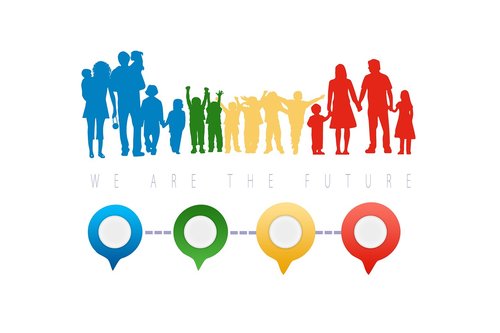Social Groups

“Family, children, forward, community, patchwork” by Geralt is in the Public Domain
Why we selected this topic
Our group is interested in the topic of COVID-19 and how it affects socialization because socialization is very important for all generations. We found it interesting because we have never seen an illness impact simple human interaction so heavily. Some people are even prioritizing these interactions over the safety and wellness of our society.
Why this topic is significant
Every individual has been affected by COVID-19, whether it is with the social isolation now, to how we have become more polarized, being in the target group, or even how our socialization in the future will be affected. Kids begin to learn how to socialize in their early years, around preschool and kindergarten. Once you get to middle school, you learn more about how you socialize, whether you are an introvert or an extrovert. High school and college is where you get to go out and meet more people, without the watching eye of your parent(s). You are able to socialize in classes or on campus, and these interactions and the people you meet there will stay with you for the rest of your life. This socialization drives us, and any disruptions to it can cause major disruptions in our lives.
How has COVID affected it?
When COVID-19 entered our world, socialization was highly impacted. All schools closed, leaving classes to be held online, over Zoom, on Canvas, etc. When the schools closed, all students were affected, and could no longer be around their classmates in a learning environment. In fact, no one could be around anyone. Social distancing became a huge part of our society after the pandemic spread across the world, and social isolation began. Of course, the first action was to protect the older generation, causing a generational divide. The media’s comments and coverage of the story made them feel devalued and insignificant. It also made the younger generation feel like they couldn’t be harmed, due to social media, causing them to ignore many guidelines. Social media has long been a tool for younger generations. This is where they made jokes and played down the situation. These jokes alienated older generations and caused them to be less concerned about the effects of the virus, leading there to be a growing division in politics between generations. With the stress of the coronavirus and election year, this division only became more apparent.
How our chapters relate to this larger topic
Our chapters relate to the future and how we and our socialization will be affected by COVID-19 as time goes on. Will we be able to go to football games, in-person classes, concerts, etc.? Or will we always be stuck following COVID-19 guidelines? Will things ever go back to the way they were? Everything changed after 9/11, will it be like that?

